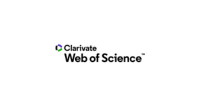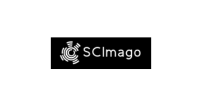Neuro-protective Efficacy of Apigenin in Induced Oxidative Stress Adult Male Rats
DOI:
https://doi.org/10.5380/avs.v27i4.87248Resumo
This study was conducted to evaluate the promising antioxidant efficacy of apigenin extracted from parsley seeds in glycosidic (aqueous extract) and aglyconic forms (acid hydrolysis and organic solvent extraction), comparing to synthetic antioxidant, (Butylated hydroxytolouene) to ameliorate neurobehavioral disorders in experimentally induced oxidative stress adult male rats. Oral administration of 0.75% H2O2 (exogenic oxidant as reactive oxygen species donar) in drinking water for eight weeks was used for oxidative stress induction. The recorded results showed that oxidative stress has caused significant (P< 0.05) alterations in the neurobehavior of experimental animals in comparison to the control. The animals manifested a significant decrease (P<0.05) in locomotor, and exploration (open field test), defect in vestibular functions (negative geotaxis test), degree of cognitive function, and neuromuscular coordination (rotarod test). Mild (non-significant) changes were recorded in autonomic nervous system activity (number of urination and defecation) in H2O2 treated group, and less or non-significant changes in the other groups. The daily administration of apigenin (150 mg/kg body weight) in glycosidic and aglycon forms protected neurons probably by reducing oxidative damage and attenuated significantly the neurobehavioral disorders and imposed its neuro-protective and sedative effects in comparison to butylated hydroxytoloune (25 mg/kg body weight) treated and control groups.
Downloads
Publicado
Como Citar
Edição
Seção
Licença
Autores que publicam nesta revista concordam com os seguintes termos:
- Autores mantém os direitos autorais e concedem à revista o direito de primeira publicação, com o trabalho simultaneamente licenciado sob a Creative Commons - Atribuição 4.0 Internacional que permite o compartilhamento do trabalho com reconhecimento da autoria e publicação inicial nesta revista.
- Autores têm autorização para assumir contratos adicionais separadamente, para distribuição não-exclusiva da versão do trabalho publicada nesta revista (ex.: publicar em repositório institucional ou como capítulo de livro), com reconhecimento de autoria e publicação inicial nesta revista.
- Autores têm permissão e são estimulados a publicar e distribuir seu trabalho online (ex.: em repositórios institucionais ou na sua página pessoal) a qualquer ponto antes ou durante o processo editorial, já que isso pode gerar alterações produtivas, bem como aumentar o impacto e a citação do trabalho publicado.














